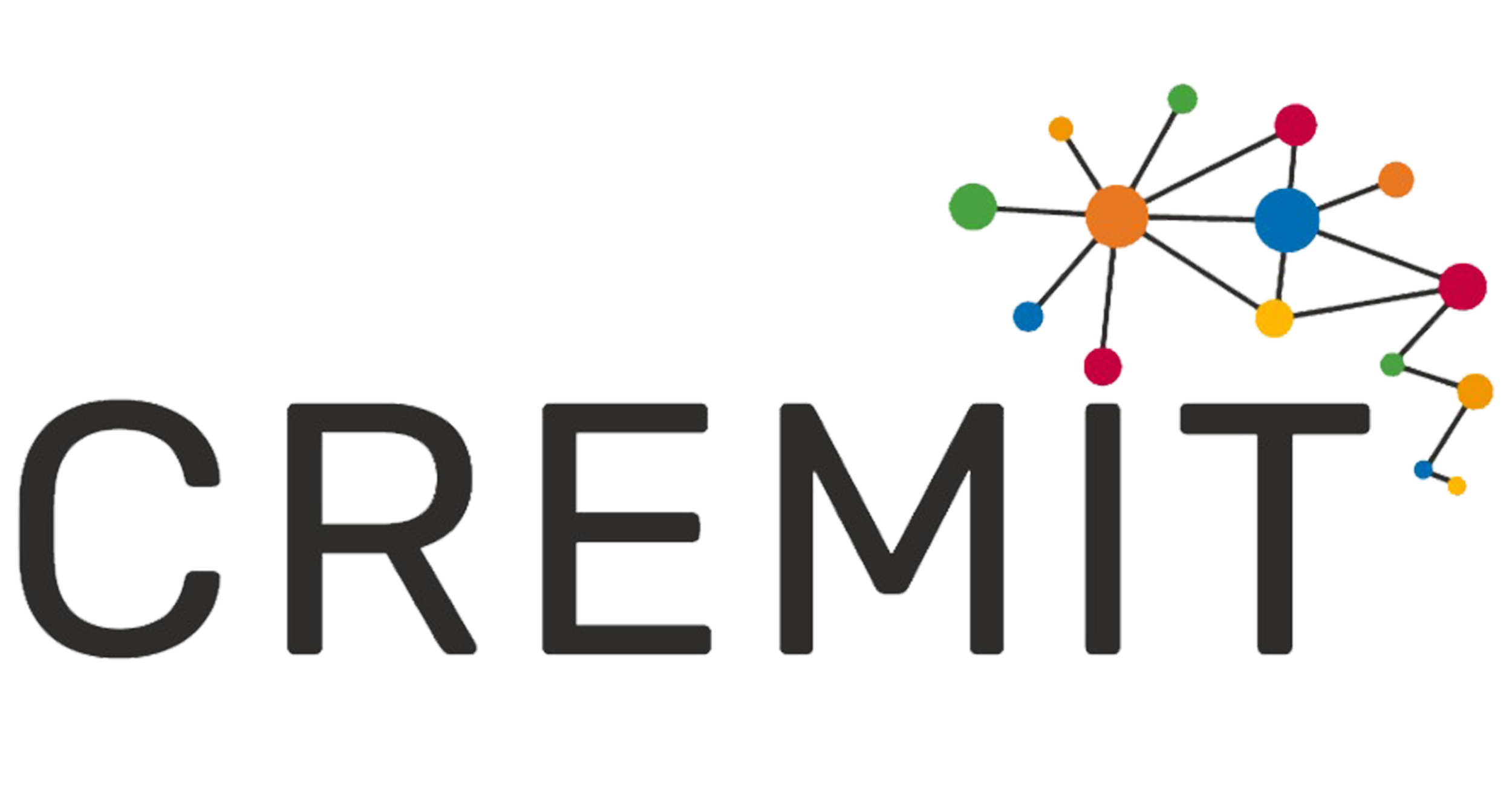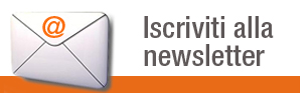✅ For the Italian version click here 🇮🇹
Local Pilots October – December 2022
By exploiting desk researches, interviews between students and policy makers and the digital skills acquired over the Joint Staff Training Event and the third project meeting schoolteachers shared the digital techniques to successfully create a digital textbook with their students !
Through a collaborative method teachers turned the classroom into a digital editorial team able to collectively elaborate the activities and works made by Eurocities and showcase the main results in a digital format enlightening on the capacities to develop cultural policies and the impact of them for cultural developments and youth participation.

The initiatives came out from the 5 nations represented by the partnerships are outstanding: ventures fighting poverty helping refugees, migrants, ethnic minorities, inclusive education, open spaces for people
promoting culture, enhancing green areas in urban planning and quality public services, free annual public exhibition reflecting on social issues, outdoor exhibitions, book festivals, land art works, stone gardens, Vertical Forests and Green walls to mitigate pollution, Musical Festivals connected with the Sustainable development Goals, spaces for showcasing local talents, support for local food provision and chain reducing the carbon footprint and contributing to local economic development or a documentary film festivals promoting sustainability, intercultural awareness and providing vegetarian and biological food, museums for kids, painting and poetry lessons, photography contests in cooperation between the Municipality, educational institutions and civil society organizations, professional choirs, public orchards, rooftop farms, financial credit loans for youngsters.

The list is in continuous updating as students provide further and appealing inputs. The set of digital textbooks will be collected by the end of January in order to be shared over 5 national school contests and virtual exchanges where the involvement of students will be furtherly enlarged and the transnational inspiring ventures will be largely disseminated !
The final works will be included into the Digital Collaborative Learning Toolkit for Teachers.

Teachers at the same time are filling a survey to check the acquaintance of digital skills as well as their reinvestment in the school environment; the first results clearly show the ability to:
- incorporate learning activities, assignments and assessments which require learners to express themselves through digital means, and to modify and create digital content in different formats.
- indicate ways to create and edit well-defined content in well-defined formats,
- operate with new different items of content and information, modifying, refining, improving and integrating them in order to create new and original ones.
The work is successfully proceeding, keep yourself updated on news !

November 2021
The Joint Staff Training Event of the Check & Design project was held in Barreiro (PT) over the last week of October 2021.
The training provided the chance to gather all the schools belonging to the partnership in order to acquire the technical competences and information to deliver the MOOC pilot version to their students and the collaborative learning activity to develop the digital textbooks.
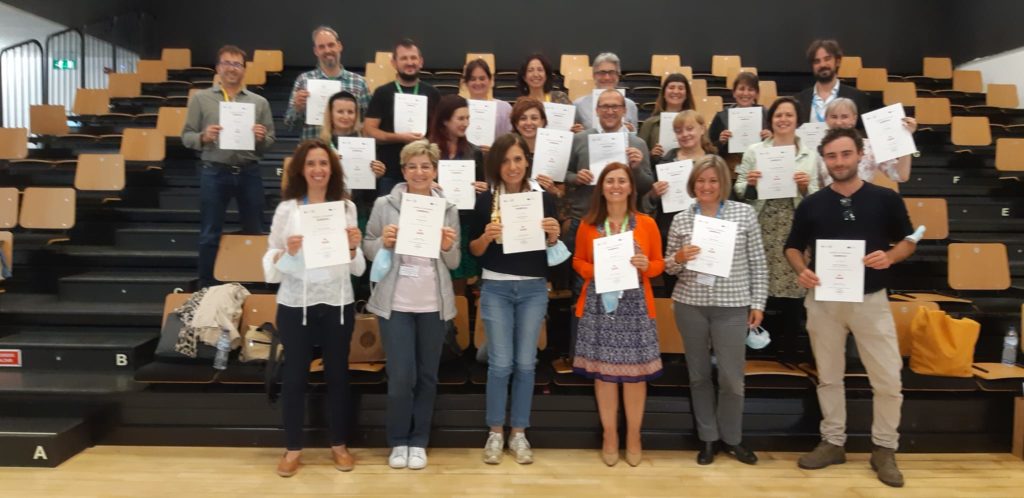
After a very well-planned welcome and venue management of the event by the Agrupamento de Escolas de Santo André Barreiro (hosting partner), the training kicked off from the presentation of the main pedagogical guidelines of the Massive Open Online Course (Intellectual Output 1)
The presentation of the EduOpen learning environment was deployed by UCSC-Cremit highlighting roles of educators and the interactions with students, the communication channels included, the blended model, the community dimension, the feedbacks loop, how to moderate online communication, how to create and store video lessons, the thematic resources.
The first introduction was followed by the presentation of three projects (Image.Me—Bodies, consumption and transformation of youngsters in the social media mirror, cAlcoolAPP (2015) and Comunicare Salute) based and developed through the Peers and Media pedagogy, the same standing behind the C&D MOOC. P&M is a model of prevention and intervention where peers are the protagonists, they are trained on prevention topics (contents), group techniques, online moderation, communication (methods); media are important prosthesis for identity processes cooperation to work on digital citizenship through blended MOOC modality.
After a technical time to let professors register into the EduOpen platform, a simulation of the e-tivity was deployed by Cremit affording a clear explanation of the informative, learning and emotive dimension of the MOOC as well as the netiquette suggested to accomplish the activity.
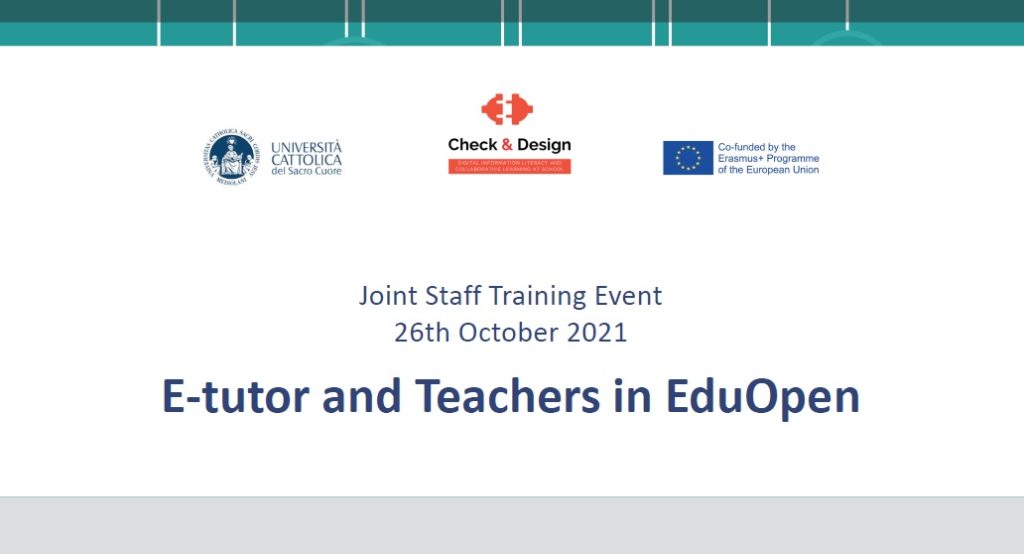
The presentation of the first module “News & Media” was delivered and over the next weeks the overall set of modules will be set up in order to realise the local pilots in schools.
Over the next day Archilabò staff trained the teachers providing skills and competences to create digital textbooks through collaborative learning activities with their students (Intellectual Output 2)
A first theoretical framework was provided by Archilabò concerning the topics and pedagogies underpinning the digital textbooks: the digital potentiality (Participatory culture, Onlife Dimension, Third space [Rivoltella; Potter, McDougall], Open Education Movement), the Active Learning (the student-centered methodology, Learning by doing, Problem and project based learning) and Inclusion (Accessibility – material, practical and cognitive, Assistive technologies and compensatory tools, Open Educational Resources (OER).
A presentation of the methodology and the tools followed right away. The team outlined the best way to collectively choice a topic, why and how divide the class in groups, how to collect and create digital materials, distribute and develop researches and then digitally assemble the contents. Teachers roles and students roles was so clearly delivered.
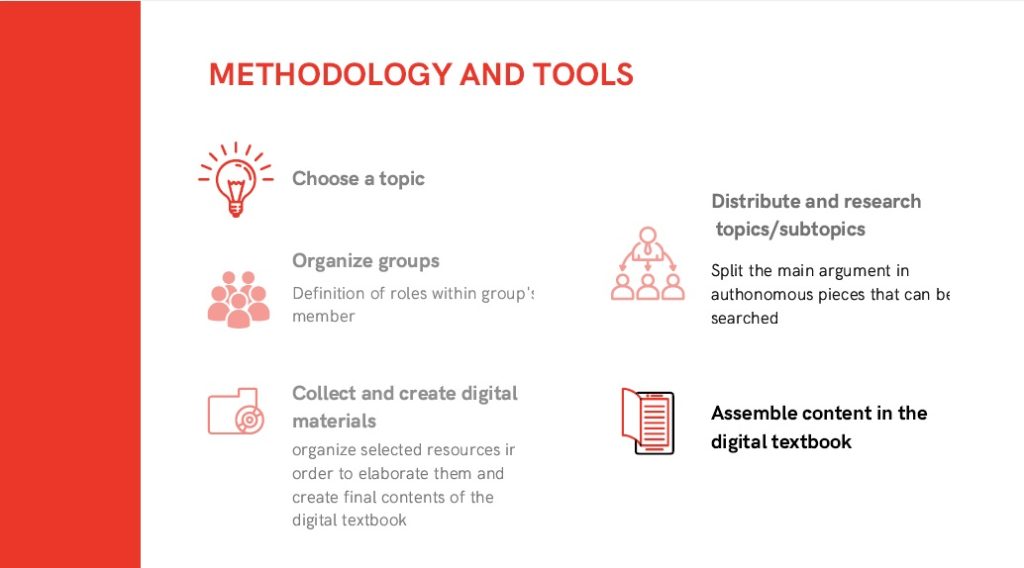
After a brief presentation of previous projects and textbooks, the teachers were divided in groups on a national base in order to start developing the digital textbooks on Eurocities involved in the creation and development of Culture and Youth activities
Over the final day a wide session was reserved to feedback and comments from teachers in order to ensure the forthcoming inclusion of the methodologies and tools in the schools environments (local pilots).
The success of the training has been highlighted by an evaluation form distributed and filled out by the teachers who are now ready to test the inclusion of the MOOC and digital textbook in their classes.
Keep yourself updated on the next activities !
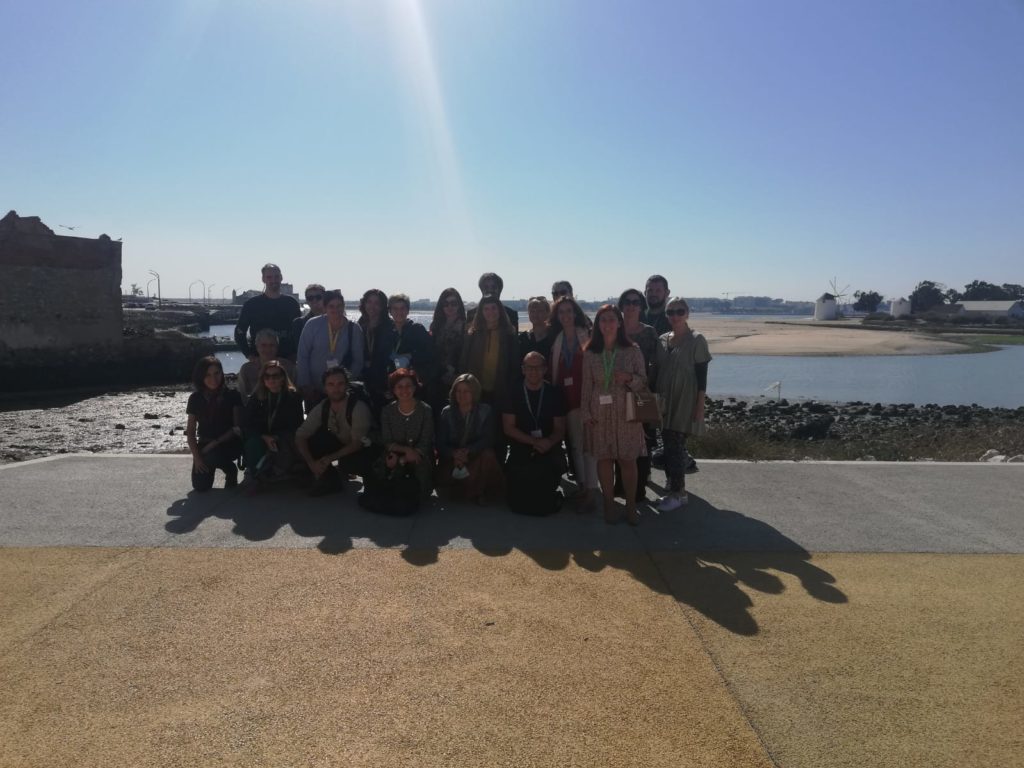
November 2020
Over the next months the first versions of the 3 Outputs will be developed by the partnership and an assessment of upper secondary school students’ digital basic skills will be achieved.
Take your time to give a look to the forthcoming Outputs…
The 2nd project meeting is set in Budapest (June 2021) providing a flagship event to share the efforts among the partners and coordinate the work at European and local level.

A landmark 4-days training will be held in Barreiro (PT) (October 2021) in order to share the first version of the MOOC and the Toolkit for digital textbook creation in order to let all the organisations involved implement the local pilots over the months ahead.
The pilots will allow the project to reach beneficiaries (upper secondary school teachers and students) and test the innovative side of the outputs on the ground, improving the digital information literacy of the main target-groups and stakeholders.
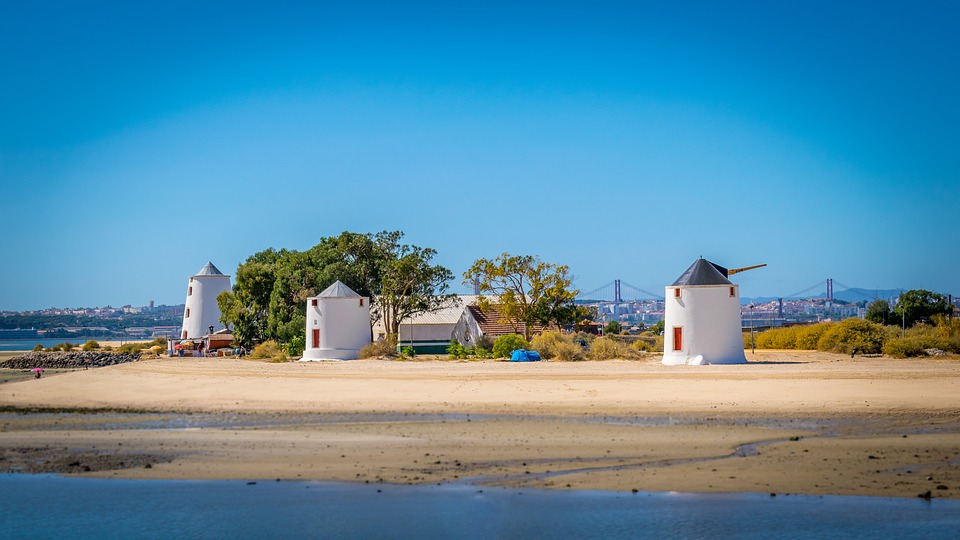
The added value of the training focuses on the delivering of innovative digital and didactical methodologies addressing school teachers needs.
The didactical methodologies will innovate school activities as the introduction of the digital outputs will be turning the relationship between school teachers and students following the
main indications outlined by the “Digital competence of educators”.
Indeed the school teachers, through the participation to the Joint Staff Training Event will acquire:
- To use digital technologies to engage in collaboration with other educators, sharing and exchanging knowledge and experience, and collaboratively innovating pedagogic practices.
- To use digital technologies and services to enhance the interaction with learners, individually and collectively, within and outside the learning session. To use digital technologies to
offer timely and targeted guidance and assistance. To experiment with and develop new forms and formats for offering guidance and support. - To use digital technologies to foster and enhance learner collaboration. To enable learners to use digital technologies as part of collaborative assignments, as a means of enhancing
communication, collaboration and collaborative knowledge creation. - To generate, select, critically analyse and interpret digital evidence on learner activity, performance and progress, in order to inform teaching and learning.
Moreover the added value of the training focuses on the introduction of digital tools in compliance with the digital framework 2.0. - Browsing, searching and filtering data, information and digital content To articulate information needs , to search for data, information and content in digital environments,
to access them and to navigate between them. To create and update personal search strategies. - Evaluating data, information and digital content To analyse, compare and critically evaluate the credibility and reliability of sources of data, information and digital content. To analyse,
interpret and critically evaluate the data, information and digital content. - To incorporate learning activities, assignments and assessments which require learners to express themselves through digital means, and to modify and create digital content in
different formats. To teach learners how copyright and licenses apply to digital content, how to reference sources and attribute licenses. - indicate ways to create and edit well-defined and routine content in well-defined and routine formats,
- express myself through the creation of well-defined and routine digital means.
- operate with new different items of content and information, modifying, refining, improving and integrating them in order to create new and original ones.
